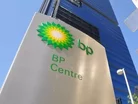Petrol retailers reemerge in Australia behind convenience stores

Fuel companies throughout Australia are beginning to take advantage of the downfall of the mining boom, as companies are investing over $1 billion in the retail petrol sector in an effort to increase the number of service stations across the nation.
The amount of gas stations in Australia has dropped from 20,000 to just over 6000 during the last 45 years, as the sector has rationalised and sold greater volumes of fuel from each site. However, the number of service stations began to rise last year as petrol retail giants Viva, BP Australasia and Caltrex Australia attempt to expand their networks.
RELATED TOPIC: Chevron project in Australia clears big hurdle
According to a report from IBISWorld in May, the current number of 6358 service stations in Australia is an increase from the recorded 50-year low of 6092 reported in 2013-14. That number is expected to rise even further to over 7000 within the next five years.
But the big question is; why is this happening now?
“The volume of industry [fuel] sales is forecast to grow modestly over the next five years, suggesting market share and profitability growth will require an ongoing push into areas such as convenience stores and care maintenance,” the report said. “The pressure on retailers will continue to drive the trend toward expanding operations and generating higher sales volumes.”
RELATED TOPIC: Woodside Petroleum Partnering With Indian Company Adani For LNG Opp
The growing trend of establishing convenience stores is becoming more and more vital, even though location and reasonable prices are also still very important. According to the Australian Competition and Consumer Commission, convenience stores made up 40 per cent of the profit ($201 million) from 20 per cent of the revenue in the previous financial year, while petrol sales contributed over half of the $495 million profit. In addition, total retail profits in both 2012-12 as well as 2013-14 were two of the highest ever.
The sudden investment in convenience outlets shows how slow opportunities are becoming in other industries, while higher margins are becoming available for selling non-fuel products to highly mobile customers who want their products quickly.
RELATED TOPIC: [Video] Tesla Comes To Australia, Fuel Industry In Question?
The petroleum company Viva, which paid $3 billion to own the Shell brand and also has a joint venture with Wesfarmers-owned Coles, has created a $300 million expansion project in an effort to upgrade its retail business. In addition, BP Australasia will spend $450 million over the next three years as it looks to regain its lost market share, while Caltex Australia is also spending hundreds of millions to get back on track.
Although there’s always been a focus on retail, the lack of recent business-to-business sales is forcing companies to shift more of their investments into retail. In the past four years, three of Australia’s seven oil refineries have either closed or are in the process of shutting down. This has caused well-known companies such as ExxonMobile and Chevron to leave Australia, while Asian global traders Vitro and Trafigura have entered the market.
But if this trend petrol-based convenience stores continues, supermarkets may soon have to find its own ways to compete with these smaller retail outlets.





